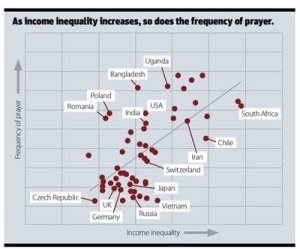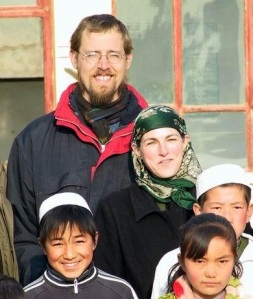Yesterday I read about a recently leaked government directive from 2011 concisely titled “Suggestions for doing a good job of resisting foreign use of religion to infiltrate institutes of higher education and to prevent campus evangelism.”
Washington Post did a great piece on the directive and the context, but I’d recommend also reading the full document. Basically, the government is concerned about Christian missionaries evangelizing on Chinese college campuses.
“Foreign hostile forces have put even greater emphasis on using religion to infiltrate China to carry out their political plot to westernize and divide China,” the document says. “Under the guise of donating funds for education, academic exchanges, studying and teaching in China, extracurricular activities, training, student aid, etc., they ‘market’ their political ideas and values, roping students into becoming religious believers.”
In a nutshell, the second part of that statement is fairly accurate, and the first part is fairly scary. A few months ago I did a piece on foreign evangelists who use English teaching as a means to enter China and proselytize. While researching, I spoke with nearly three dozen people including missionaries, their co-workers and students. I’d also previously encountered these kinds of evangelists personally while teaching.
As the document suggests, there are indeed thousands of these people in China; many of whom conduct activities that would raise legal issues even in Western democracies. I heard stories of teachers requiring students to attend Bible studies in order to pass their class. Many used Christian teaching materials and held English classes based on Biblical themes. I even heard about a teacher requiring his students to put on a play about the seven deadly sins that featured Jesus lugging a crucifix.
But a few things jumped out at me from this document. The first was how the government still fundamentally misunderstands what motivates Christian missionaries. To some degree, this is understandable. Chinese officials tend to be pragmatic worldly people with little exposure to religion. The idea that someone would spend so much time and resources changing others’ beliefs for no tangible reason makes no sense. That these missionaries feel duty-bound to a supernatural deity and believe they’re literally saving their converts just doesn’t register. Clearly, there must be some devious political agenda beneath that pious surface.
There are indeed those like Bob Fu who have explicit regime-change goals, but they seem to be a small minority. Most seem to consciously avoid even mentioning politics. They may expend disproportionate effort on students with political ambitions, but this is more in hopes of getting religious policy relaxed, not overthrowing the entire system.
The second thing that jumped out was how the government still so fundamentally misunderstands youth that might be inclined to convert. The document gives prescriptions for dealing with them, saying:
“Adhere to using the theory of Socialism with Chinese Characteristics to arm students’ minds. Extensively launch activities for the study, teaching, publicizing and popularization of core socialist values. Strengthen propaganda for and education in Marxist views on religion, the Party’s principles and policies for education work, and the relevant laws and regulations of the state.”
If you’re a standard human, you probably barely made it through that paragraph without falling asleep. And that’s just a small taste of the years of Marxist and political education Chinese students are required to take. The thing is, many of the young Christian converts I spoke to specifically cited the emphasis on empty Marxist dogma as something that pushed them to explore religion. So using Marxism to combat evangelism is like using a Ben Stein lecture to convince a kid he should go to school instead of play video games.
But for all the document got wrong about motivations, it did seem to have a firm grasp on the methods missionaries tend to use and where universities go wrong.
It tells schools to offer intriguing activities for students and provide mental health services. It says advisors should hold “extensive heart-to-heart talks” with students, help “guide their emotions” and “dispel confusion.” By doing these things, they won’t be so inclined to “cozy up” to foreign missionaries (who tend to be much better at offering emotional and academic support than the schools).
It then goes on to suggest strategically planning recreational and academic events during religious holidays. Indeed, Christmas and Easter are high season for conversion. Christmas is a perfect opportunity to talk Jesus. And in one case I found, a foreign teacher invited students over to watch an “Easter movie” that turned out to be The Passion of Christ.
It warns of academic exchanges organized by Christian groups. Some of these are set up to get Chinese students overseas for conversion, then returned to spread the gospel at home. Meanwhile, foreign missionary students are the exchanges that come to Chinese schools.
After previously thinking central government leaders were simply clueless about these things, I was surprised to see how much they seem to be aware of. But one thing that struck me while researching this story was that, in spite of China’s inhospitable stance on religion, these things tend to be tolerated even more here than they would be in the West at the local level. And the document seems to tacitly acknowledge that.
It says, “If serious problems arise because responsibilities were not performed or work is not properly done, you shall seriously investigate and look into the matters and call to account the responsible members and relevant leaders.”
The whole document repeatedly admonishes administrators to get off their butts and actively fight off foreign missionaries. The language was very similar to the routine pleas for corrupt officials to get clean. This, I think, is because this issue, like corruption, has a rather large gulf between central government goals and local cadre interests. And it may actually involve corruption.
The way many of these missionary teachers work is through larger organizations or churches based overseas. Working with donations, they take salaries from the schools that are a fraction of what independent teachers would be paid. In addition, they’ll sometimes donate teaching materials, student scholarships and outright cash aid to schools. Two sources I spoke with reported that one organization they know of even sponsors trips to the US for high university and local education officials. The organization wouldn’t confirm or deny this.
Then miraculously, when students or other teachers complain about proselytism to lower administrators, there doesn’t tend to be much action. Whatever vague national threats these “infiltrators” present are subservient to more tangible local interests.
Going beyond just the issue of evangelism though, the document also basically proved something I’ve started to realize in recent months, but have had a hard time fully accepting. It’s that the idea of “the US-led Western countries” conspiring to use things like religion to “infiltrate” China so they can “westernize and divide it” isn’t just jingoistic propaganda used for political ends. This is something that A LOT of people in China’s government seem to actually believe.
This document was issued by the United Front Department (a branch of the powerful Central Committee) and given only to senior officials. They were then to communicate it orally to their subordinates in order to hedge against the document being leaked. In other words, this wasn’t propaganda intended for the masses. It was an internal Party memo. That the same jingoistic language you’d see in Global Times was used here shows that the Party actually believes its conspiratorial fear-mongering, and that’s kind of scary.


